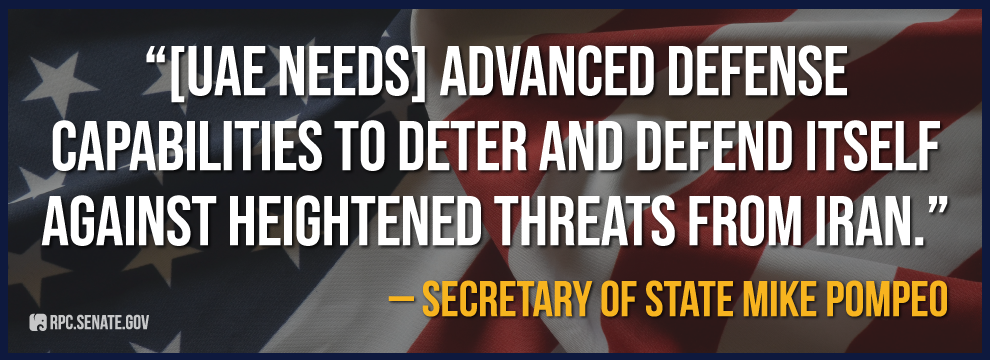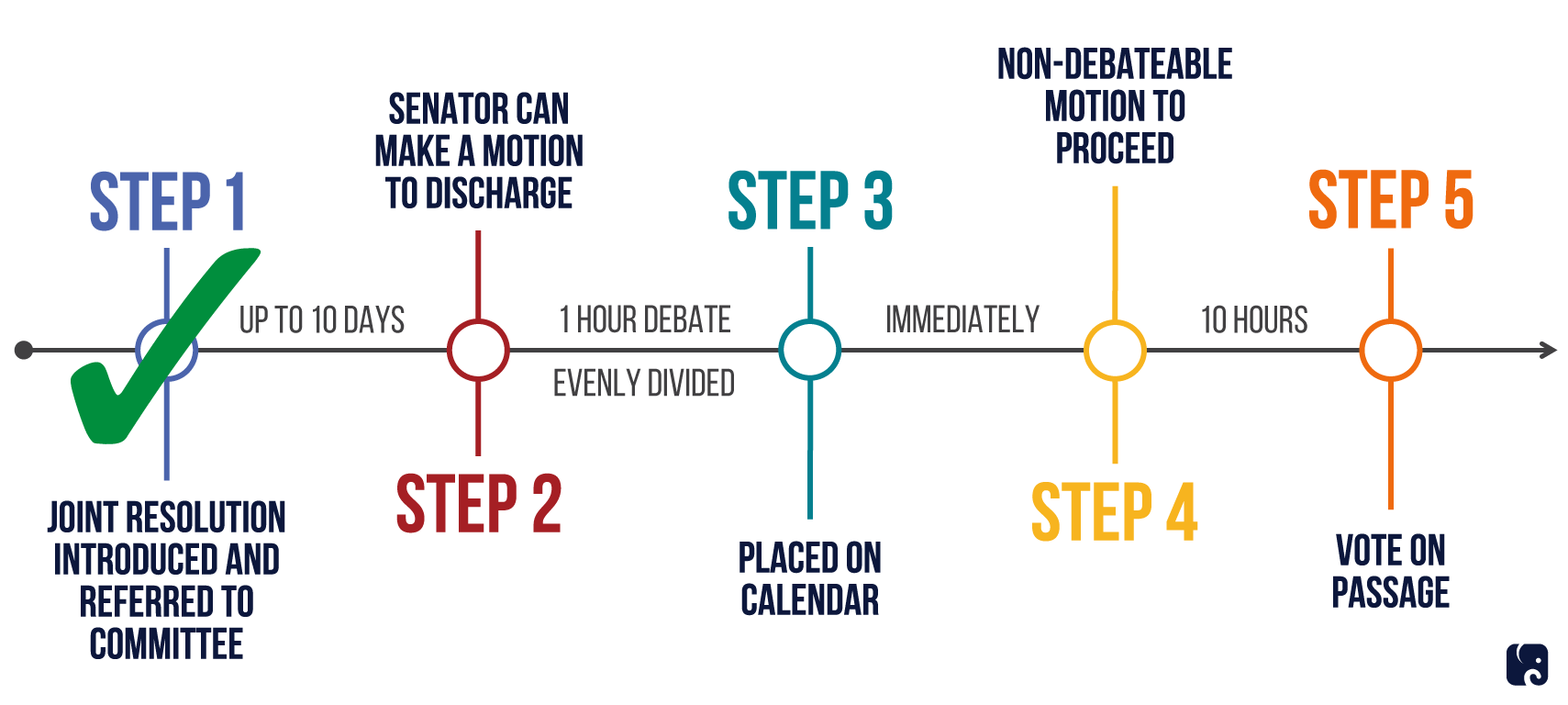UAE Arms Sales
KEY TAKEAWAYS
- The Trump administration recently notified Congress of its intent to sell arms to the United Arab Emirates.
- These weapons would boost UAE’s ability to deter and defend against Iranian aggression and would enable greater interoperability between the militaries of the UAE, the U.S., and Israel.
- Joint resolutions of disapproval were recently introduced in both the House and Senate. Under special procedures delineated in the Arms Export Control Act, these resolutions are privileged on the Senate floor. Joint resolutions are subject to a presidential veto.
The Trump administration notified Congress of its intent to sell arms to the United Arab Emirates in early November. The arms deal would consist of F-35 jets, MQ-9 unmanned aerial vehicles, and other advanced munitions totaling $23.4 billion. This notification triggered a 30-day congressional review period before the sales can continue.

The August signing of the Abraham Accords, which led to normalization of relations between Israel and the UAE, helped create the conditions to enable the sale of advanced weapons, including F-35s. These accords represent the largest step forward for peace between Arab nations and Israel since the normalization of relations between Jordan and Israel in 1994. The Trump administration believes these sales are important to cement the progress of the accords and to help the UAE defend against a growing threat from Iran.
Arms sales by the U.S. to countries in the Middle East can help protect America’s security interests in the region. These sales are critical in the context of the October 2020 expiration of the U.N. arms embargo against Iran and the possible efforts of a Biden administration to provide sanctions relief to Iran in support of a renewed Joint Comprehensive Plan of Action. Iran has previously used funds provided under the JCPOA to build its missile force and support its terrorist proxies.
The Chinese and Russians are also working to grow their influence in the region, including through sales of advanced weapons systems to countries in the Arabian Gulf. The administration believes that this deal will help to displace the growing Russian and Chinese influence, and it has expressed confidence UAE is committed to turning away from strategic relationships with China and Russia if the deal goes through.
Israel has said that it does not oppose the deal. The U.S. supports Israel’s security through a legal requirement regarding its “qualitative military edge.” The administration provided the required QME certifications for these sales in mid-November.
congressional context
On November 18, Senators Bob Menendez, Chris Murphy, and Rand Paul introduced four separate joint resolutions of disapproval. Representative Ilhan Omar introduced resolutions in the House. Under the Arms Export Control Act procedures governing the export of weapons and congressional review, Congress has 30 days to review the sales, starting with the date the administration officially declared the sale: November 10. After the 30 days, the president is free to proceed with the sale.
Expedited Procedure

During the 30-day review period, any senator can introduce a joint resolution of disapproval, which is considered privileged and referred to the Foreign Relations Committee. If the committee does not act on the resolution within 10 calendar days, a supporter of the resolution can make a motion to discharge the resolution from committee. If senators agree to the motion to discharge, which is limited to one hour of debate split evenly between supporters and opponents, the legislation becomes pending. Once pending, a senator can make a non-debatable motion to proceed. If senators agree to the motion to proceed, they will vote on final passage after 10 hours of debate. Both the motion to proceed and final passage preclude motions to recommit and are not amendable. A unanimous consent agreement can alter the entire procedure.
These resolutions require passage by both chambers and are subject to a presidential veto. Congress has yet to block an arms deal with legislation, but this process did cause President Reagan to alter a sale with Saudi Arabia in the 1980s. Senators can also introduce legislation to block the sale outside of the review period, but these efforts will not have privileged status.
The Senate last considered these types of resolutions in June 2019, when S.J.Res.36, 38, and multiple en bloc resolutions passed the Senate, relying on mainly Democratic support. President Trump vetoed the three resolutions that passed both the Senate and House in July and the Senate failed to override the veto message on S.J.Res.36, 37, which was included in the en bloc package, and 38.
Supporters of blocking the sales have expressed concerns about end use monitoring; human rights issues with the UAE’s involvement in Yemen; and the potential for an arms race among countries in the region. These skeptics have also asked for more information on what measures the U.S. has taken to prevent China, Russia, and others from gaining access to information about the F-35.
Next Article Previous Article
